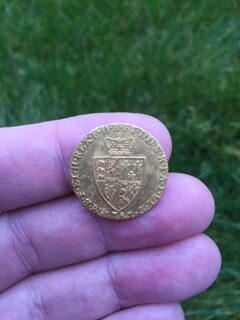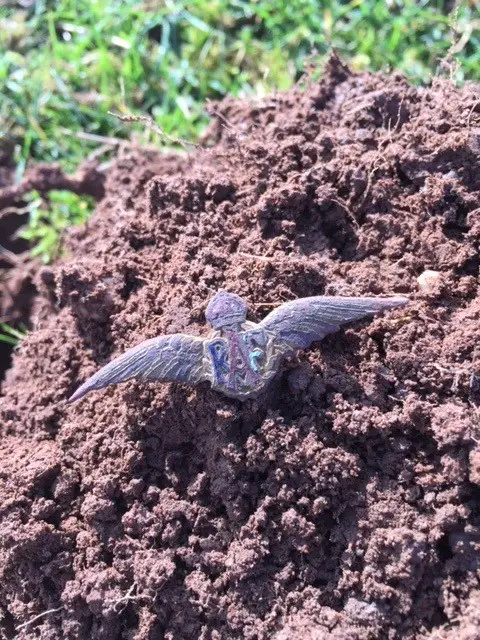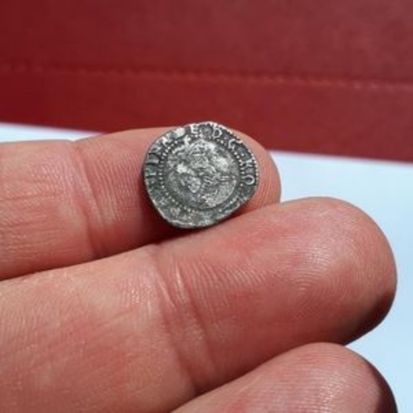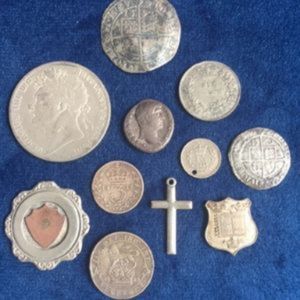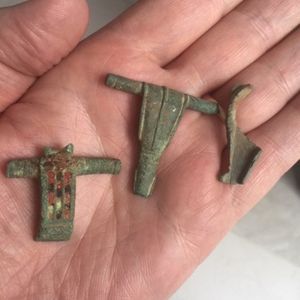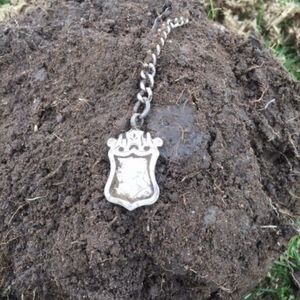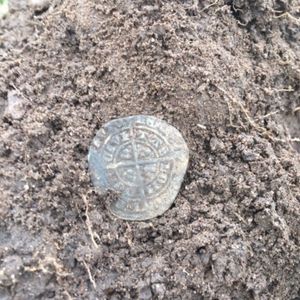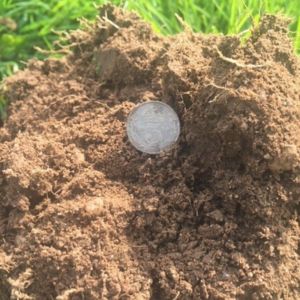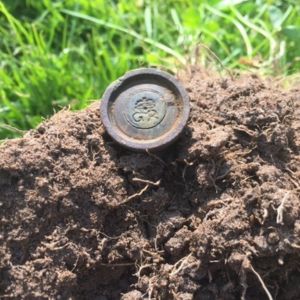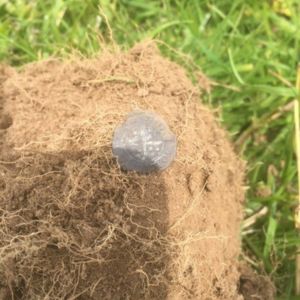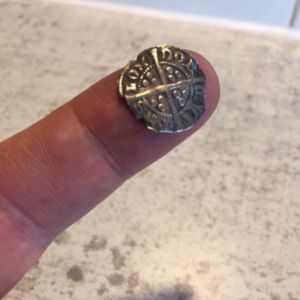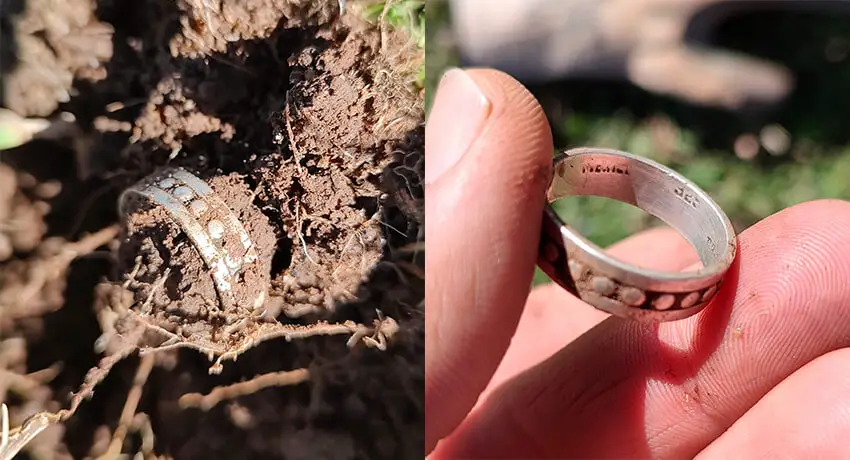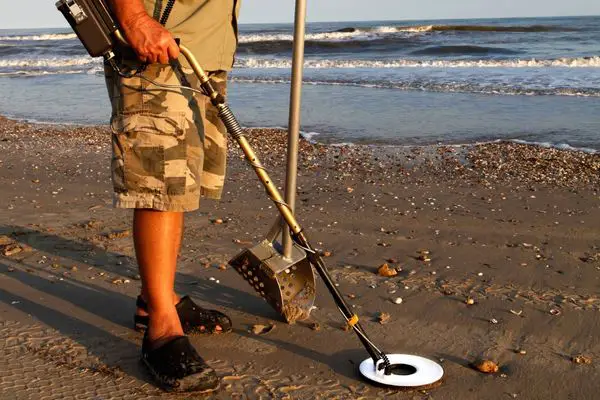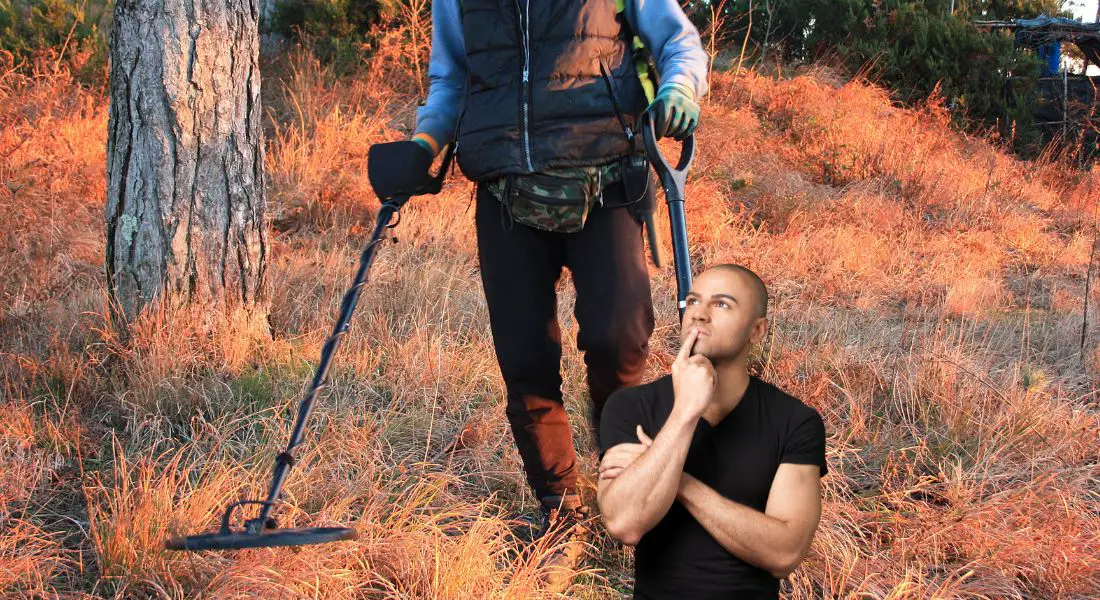Staying safe with suspicious finds while metal detecting
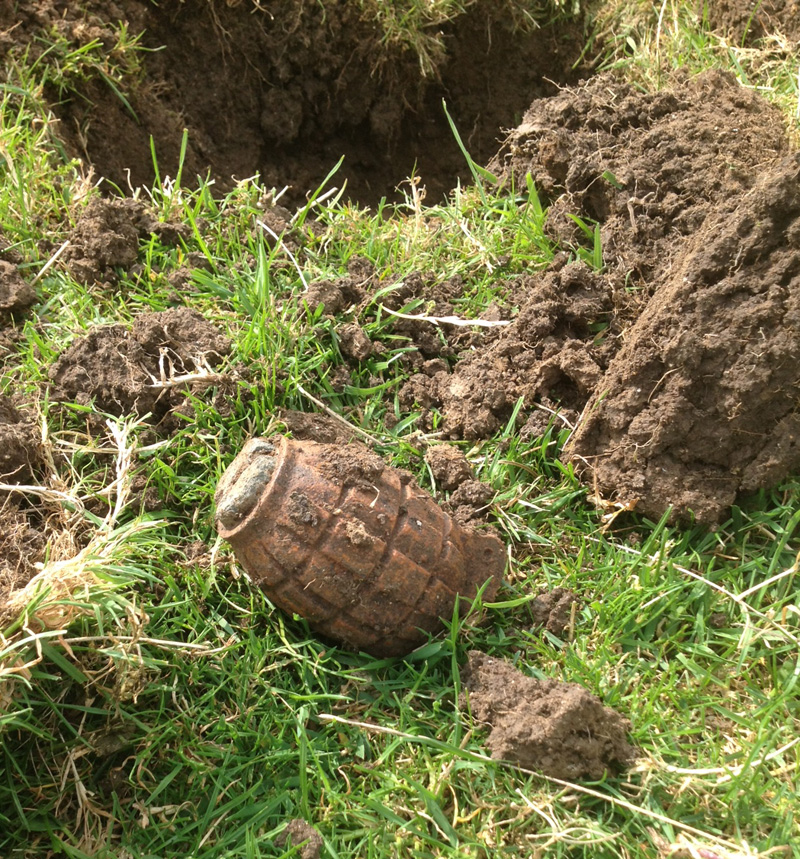
The thrill of unearthing hidden relics with your metal detector can be the best feeling in the world.
What happens however when your excitement turns into apprehension upon finding something potentially dangerous?
Whilst uncovering fascinating historical items is fantastic, prioritising safety should be your first thoughts when encountering objects that could pose a risk.
This article helps you gain the knowledge and steps to take if you stumble upon a dangerous object whilst metal detecting and ensure your safety and the responsible handling of such finds.
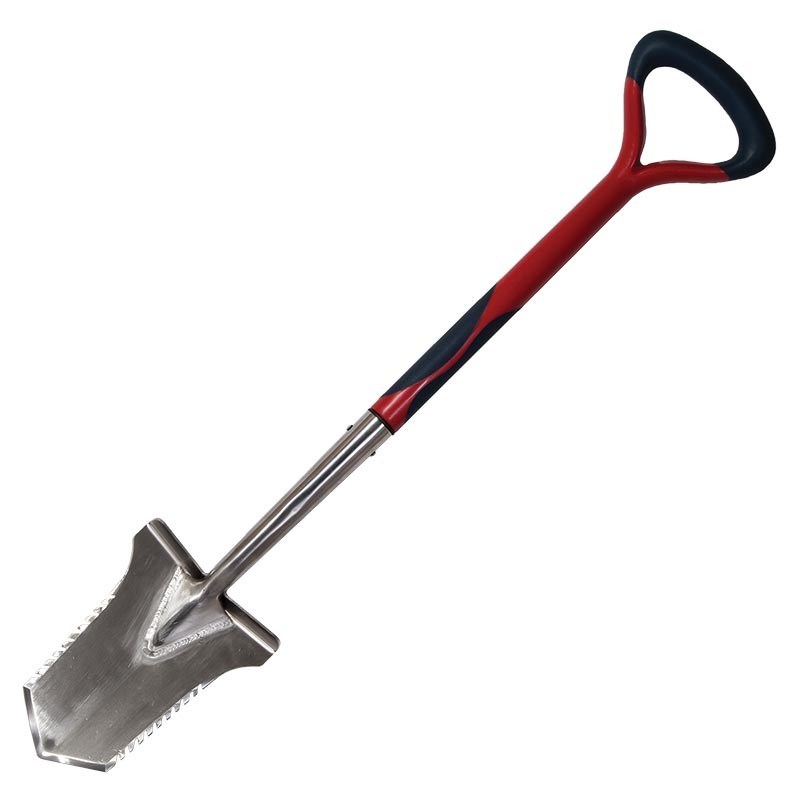
The Evolution Pro Cut
The ultimate accessary for the serious metal detectorist. Super strong, stainless steel specially designed spade.
Recognising the most common dangerous objects you may encounter
Metal detecting exposes you to diverse finds, some harbouring hidden dangers. Here are some common examples:
Unexploded Ordnance (UXO): WWII bombs, mortar shells and hand grenades still remain buried in areas across the UK. Never touch or move suspected UXO.
Historic Munitions: Bullets, cartridges and detonators from various eras can still be active and explode if mishandled, even after what seems a long time in the ground. Leave them undisturbed or if already disturbed, move them to a location where they are less likely to be found.
Chemical Containers: Corrosive or explosive chemicals stored in canisters or drums pose environmental and health risks. Maintain a safe distance and avoid inhaling any fumes.
Sharp Objects: Rusty knives, blades, bottle tops with broken glass and debris can cause injuries. Handle them with caution and use thick gloves.
You can read further into the importance of wearing gloves with suggestions in my article here.
Medical Waste: Needles, syringes and biohazard materials pose the risk of infection. Avoid them completely and report them immediately or carefully dispose of responsibly.
What to do when you find a suspicious object
Facing a potentially dangerous find requires a calm and responsible approach. In the words of Lance Corporal Jones from one of my favourite shows, “Dad’s Army”……Don’t Panic!
1. Stop Immediately: Cease digging and maintain a safe distance from the object. Do not touch or move it under any circumstances if you think the danger is enough to warrant.
2. Mark the Location: Clearly mark the area around the object using cones, flags or other visible markers like tree sticks from branches to prevent accidental contact.
3. Secure the Area: If possible, cordon off the area to prevent others from approaching the object. This might involve informing nearby people and creating a physical barrier, if feasible.
4. Notify Authorities: Depending on your location, contact the relevant authorities immediately. In the UK, this would be the police by dialing 999 for emergency or calling 101 for non-emergency.
5. Provide Details: Clearly describe the object’s appearance, size and location to the authorities. Share any additional information you might have, such as its potential origin or the type of environment you found it in.
6. Follow Instructions: Do not attempt to investigate the object further or tamper with it in any way. Wait for the arrival of trained professionals and follow their instructions explicitly.
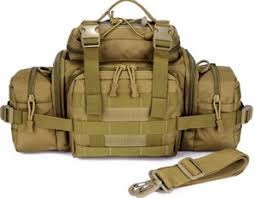
Ultimate Tactical Packs!
Carry everything you’ll need for a detecting day like a First Aid kit, detector spares, finds boxes, batteries, snacks and drinks to rehydrate.
Never forget anything again with a belt pack!
Remember – Safety first, discovery second!
Whilst the urge to investigate an intriguing find is natural, prioritising your safety, the safety of other detectrists and the general public is paramount. Remember:
Do not underestimate the potential danger: Even seemingly harmless objects can harbour hidden risks. A sharp shovel hitting an object in the wrong place could be catastrophic.
Leave it to the experts: Trained professionals like the Bomb Disposal team have the equipment and expertise to safely handle dangerous objects.
Documentation is key: Take pictures of the object and its location from a safe distance for reference purposes.
Responsible reporting and ethical considerations
Once the authorities have safely retrieved or detonated the object, consider these additional steps:
Report your find: Even if the object is deemed harmless, reporting it to the Portable Antiquities Scheme (PAS) helps document historical finds and maintain accurate records.
Learn from the experience: Research the type of object you found and understand the potential hazards it might pose. This knowledge can enhance your future metal detecting activities.
Respect the past: Remember that your finds might have historical or cultural significance. Treat them with respect and report them to the appropriate authorities for proper preservation.
Metal detecting in the UK offers a unique opportunity to connect with history and unearth hidden treasures.
By prioritising safety and responsible handling of potentially dangerous finds, you can ensure a rewarding and enjoyable experience for yourself and others.
Remember, safety first, discovery second and always err on the side of caution when encountering anything suspicious. Always be mindful that your next trip out could be eventful….!
Conclusion
Metal detecting in the UK allows you to explore history firsthand unearthing hidden objects that speak of times gone by. While the thrill of discovery is undeniable, safety must always be your top priority.
By understanding the potential risks, knowing how to handle dangerous finds responsibly and respecting regulations and ethical considerations, you can ensure a safe and rewarding metal detecting experience that enriches both your knowledge and appreciation for history.
So, get out there, explore responsibly, and remember – safety first, discovery after!

Unbeatable Multi Frequency!
You can now get the ultimate power of multi frequency technology over single frequency detectors with the Minelab Vanquish range of detectors.
The entry level Vanquish 340 now gives you ultimate depth, stability and sensitivity on all target types in every soil, including wet beach sand.



